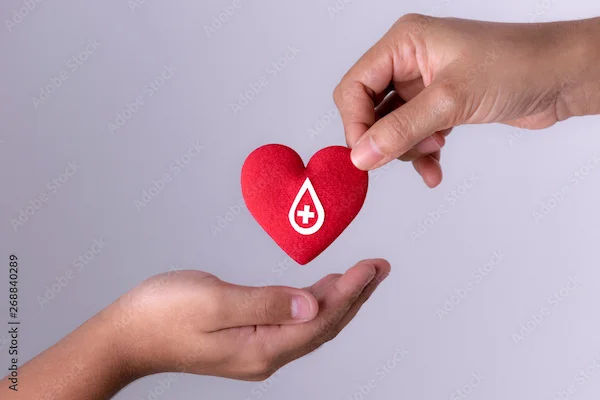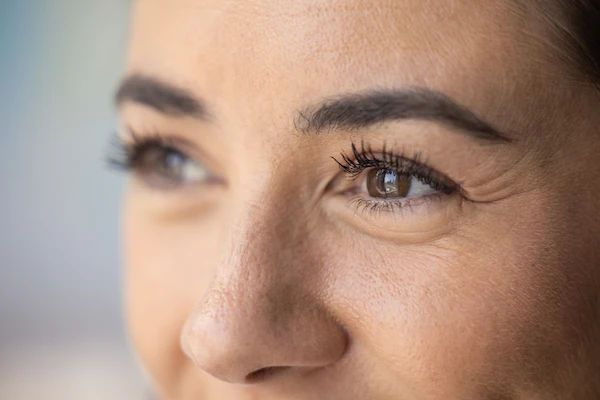Claustrophobia: Understanding Symptoms and Treatment
Learn about claustrophobia, its common symptoms, triggers, and available treatment options. Understand how this anxiety disorder affects daily life and explore effective ways to manage and overcome it.


Introduction
Do you feel anxious or panicked in tight spaces like elevators, crowded rooms, or MRI machines? You might be experiencing claustrophobia, a common type of anxiety disorder where people fear enclosed or confined spaces. If this sounds familiar, don’t worry, you’re not alone, and help is available.
In this article, we’ll explore what claustrophobia is, its symptoms, causes, and how it affects daily life. We’ll also share practical tips to manage it and treatment options that can help you regain control.
What is Claustrophobia?
Claustrophobia is an intense fear of being in enclosed or tight spaces. It’s more than just discomfort; it can trigger severe anxiety or panic attacks. Common situations that may provoke claustrophobia include:
- Riding in elevators
- Being in crowded rooms or public transport
- Undergoing MRI or CT scans
- Using small bathrooms or changing rooms
- Flying in airplanes
For some, even the thought of being trapped can cause distress. If left untreated, claustrophobia can interfere with daily activities, work, and medical care.
Consult a Psychologist for the best advice
Symptoms of Claustrophobia
People with claustrophobia experience both physical and emotional symptoms when in or thinking about confined spaces. These may include:
Physical Symptoms:
- Rapid heartbeat
- Shortness of breath or hyperventilation
- Sweating or trembling
- Chest tightness or pain
- Nausea or dizziness
- Feeling faint
Emotional Symptoms:
- Overwhelming fear of being trapped
- Urge to escape the situation immediately
- Fear of losing control or fainting
- Anxiety about future situations where they might feel confined
In severe cases, these symptoms can lead to a panic attack, making the person feel like they’re in immediate danger.
What Causes Claustrophobia?
The exact cause of claustrophobia isn’t always clear, but several factors may contribute:
1. Past Traumatic Experiences – Being trapped in a small space (like a locked room or stuck elevator) can trigger a lasting fear.
2. Learned Behaviour – If a parent or close family member has claustrophobia, a child may develop similar fears.
3. Brain Function – Some studies suggest that the amygdala (the brain’s fear center) may be more sensitive in people with phobias.
4. Stress & Anxiety Disorders – People with general anxiety or panic disorders are more prone to developing phobias.
How Does Claustrophobia Affect Daily Life?
Living with claustrophobia can be challenging. Some people avoid:
- Medical Procedures – Skipping necessary MRI or CT scans due to fear of enclosed machines.
- Travel – Avoiding flights, trains, or elevators, which can limit work and social life.
- Social Events – Staying away from crowded places like concerts, theaters, or parties.
Over time, these avoidances can lead to isolation and increased anxiety.
Tips to Manage Claustrophobia
If claustrophobia affects your life, here are some self-help strategies to cope better:
1. Practice Relaxation Techniques
- Deep breathing exercises
- Meditation or mindfulness
- Progressive muscle relaxation
2. Gradual Exposure (Desensitization)
- Start with mildly uncomfortable situations (like standing in a small room with the door open).
- Gradually increase exposure as you feel more in control.
3. Use Distraction Techniques
- Listen to music or podcasts in confined spaces.
- Focus on counting objects or reciting something to shift attention.
4. Seek Support
- Talk to friends or family about your fear; they can provide reassurance.
- Join support groups where others share similar experiences.
Professional Treatment Options
If self-help methods aren’t enough, professional treatments can make a big difference:
1. Cognitive Behavioural Therapy (CBT)
- Helps change negative thought patterns about confined spaces.
- Teaches coping mechanisms to handle anxiety.
2. Exposure Therapy
- A therapist guides you through controlled exposure to feared situations.
- Builds confidence in managing anxiety over time.
3. Medication (if needed)
- Anti-anxiety medications or antidepressants may be prescribed for severe cases.
4. Virtual Reality Therapy (VRT)
- Some clinics use VR to simulate confined spaces in a safe, controlled environment.
When to Seek Help?
If claustrophobia:
- Disrupts your daily routine
- Prevents you from getting necessary medical tests
- Causes frequent panic attacks
It may be time to consult a mental health professional.
Final Thoughts
Claustrophobia is a treatable condition. With the right strategies and professional support, you can overcome your fear and regain freedom in daily activities. Remember, seeking help is a sign of strength, not weakness.
Consult a Psychologist for the best advice
Consult a Psychologist for the best advice

Ms. Moumita Ganguly
Psychologist
13 Years • B.ED(Special) Visual Impairment , PG.Diploma in Rehabilitation psychology
Kolkata
M’s Clinic, Kolkata
(125+ Patients)

Mr. Aman Kochhar
Psychologist
2 Years • MA - Psychology, Post Graduate Diploma In Guidance and Counselling
New Delhi
Well-mind Counselling, New Delhi

Dr. Jinesh Shah
Psychiatrist
20 Years • MBBS, MRCPsych (UK), CCT in Adult Psychiatry (UK), CCT in Child and Adolescent Psychiatry (UK), PG Diploma in Clinical Psychiatry (UK), Cert Hypnotherapy (UK).
Ahmedabad
Apollo Speciality hospital, Ahmedabad, Ahmedabad
(100+ Patients)

Mr. Kiran S Sawekar
Clinical Psychologist
10 Years • Master of Science (M.Sc.) in Psychology (Clinical), Master of Philosophy (M.Phil) in Psychology
Bengaluru
Apollo Medical Center, Marathahalli, Bengaluru

Ms VISHAKHA RATHI
Psychologist
4 Years • MA (Psychology)
Delhi
REBUILDING MINDS (OPC) PRIVATE LIMITED, Delhi
Consult a Psychologist for the best advice

Ms. Moumita Ganguly
Psychologist
13 Years • B.ED(Special) Visual Impairment , PG.Diploma in Rehabilitation psychology
Kolkata
M’s Clinic, Kolkata
(125+ Patients)

Mr. Aman Kochhar
Psychologist
2 Years • MA - Psychology, Post Graduate Diploma In Guidance and Counselling
New Delhi
Well-mind Counselling, New Delhi

Dr. Jinesh Shah
Psychiatrist
20 Years • MBBS, MRCPsych (UK), CCT in Adult Psychiatry (UK), CCT in Child and Adolescent Psychiatry (UK), PG Diploma in Clinical Psychiatry (UK), Cert Hypnotherapy (UK).
Ahmedabad
Apollo Speciality hospital, Ahmedabad, Ahmedabad
(100+ Patients)

Mr. Kiran S Sawekar
Clinical Psychologist
10 Years • Master of Science (M.Sc.) in Psychology (Clinical), Master of Philosophy (M.Phil) in Psychology
Bengaluru
Apollo Medical Center, Marathahalli, Bengaluru

Ms VISHAKHA RATHI
Psychologist
4 Years • MA (Psychology)
Delhi
REBUILDING MINDS (OPC) PRIVATE LIMITED, Delhi




